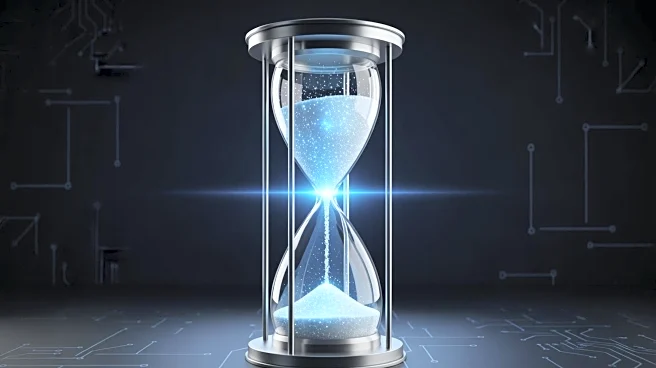What's Happening?
Ranan Lachman's book, 'Comfort Override: Future-Proof Your Life as AI Flips Your World,' delves into the challenges posed by rapid technological and environmental changes. The book emphasizes the importance of adapting to these changes through the ADAPT
system, which includes transforming rigid routines into flexible strategies, building resilience through micro-experiments, and developing AI collaboration capabilities. Lachman argues that traditional routines and expertise may become obsolete due to AI's impact on the workforce and climate change's economic effects. The book provides practical examples and challenges to help readers break free from routine addiction and prepare for future uncertainties.
Why It's Important?
The book highlights the significant impact of AI and climate change on global economies and job markets, suggesting that millions of workers may need to change occupational categories by 2030. It underscores the necessity for individuals to adapt their career strategies and personal routines to remain relevant and resilient in the face of these disruptions. By offering a framework for adaptation, the book aims to empower readers to transform themselves faster than the world changes around them, potentially leading to more sustainable career paths and personal growth.
What's Next?
Readers are encouraged to engage with the book's challenges and assessments to evaluate their routine rigidity and develop strategies for flexibility. The book outlines a 90-Day Sprint to help individuals transform their lives and careers, focusing on building new neural pathways for adaptability. As AI continues to evolve, the book suggests that strategic skills stacking and AI collaboration will become crucial for professional success.
Beyond the Headlines
The book explores deeper implications of routine addiction, describing how predictable patterns can make individuals vulnerable to disruption. It discusses the psychological and behavioral aspects of comfort addiction and offers insights into breaking free from these habits. The book also touches on the ethical and cultural dimensions of adapting to AI and climate change, encouraging readers to consider the broader societal impacts of these transformations.
















